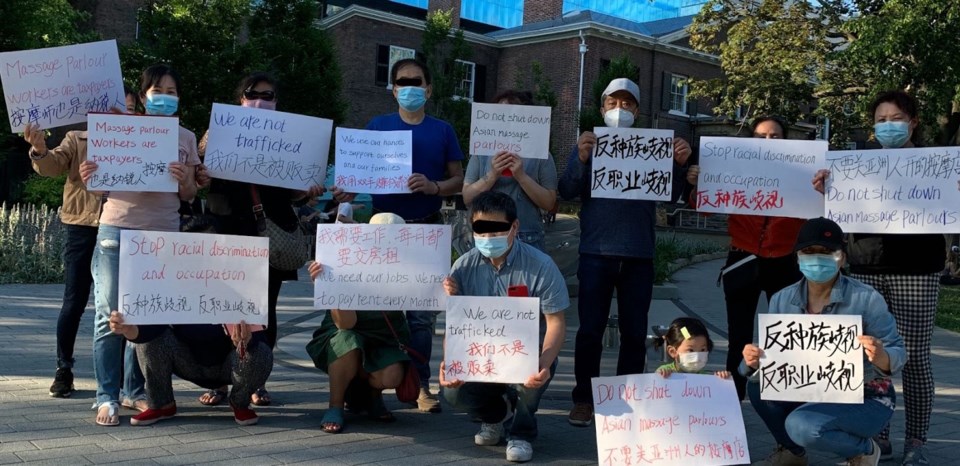Newmarket’s bylaw enforcement has begun to take action against massage parlours without licences, but advocates say Asian-run ones are being unfairly targeted.
The town said it has identified three massage parlours that it will not license due to them having illegal sexual activity for which charges will be laid.
Meanwhile, Asian and migrant sex worker advocacy group Butterfly reported that two of the seven Newmarket Asian massage parlours it works with have closed since Newmarket’s bylaw came into effect. It said the others have been unable to get licensed in the new system and published an open letter calling for more support to oppose the bylaw.
“We're very disappointed the town did not really change the policy to make the worker can get their licence,” executive director Elene Lam said. “This policy is imposing systematic racism to kill the business.”
The town introduced a “personal wellness establishment” business classification that began enforcement this year, requiring alternative massage businesses to get licensed by showing proof workers have post-secondary accreditation or alternative training. Council passed the change last year to address alleged illicit activity, namely sex work, happening at such parlours.
The town said it has issued formal denials to four business, though is working with two additional owners on their applications. But it said three denials come from places with evidence of "illegal commercialization and advertisement of sexual services."
"These actions are made illegal by the federal Criminal Code. The Town of Newmarket cannot issue a business licence to any business engaging in illegal activity contrary to provincial or federal law," the municipality said.
In practice, Lam said the law has effectively targeted Asian parlours, with none of the ones they have worked with being able to get licensed. Dozens of other advocacy groups have joined them in calling for the new rules to changes.
Fines have been a primary means of enforcement, Lam said, with the unlicensed parlours facing thousands in fines for operating without one.
“They are forcibly displaced,” she said. “People want to work in Newmarket because they live in the community, they have a connection in the community and some of them are forced to relocate. They cannot afford to be charged every day, and the level of intimidation has affected their mental health.”
The town said it has posted notices on business storefronts operating without a licence.
"Several charges have been laid against the businesses, in accordance with the law. Charges vary and are specific to the violations documented through ongoing investigations," the municipality said.
Legal counteraction is being pursued. Lawyer Marcus McCann is working on appeals to the licence denials and the fines themselves.
“These are small business owners who are already under a lot of pressure because of the past two years of the pandemic, and the town isn’t helping,” McCann said. “We are open to working with the town on a resolution, but until that happens, it’s going to be an extra administrative burden on Newmarket’s small business owners and an enormous waste of municipal resources for the town.”
The parlours as suspected human trafficking locales were raised in council discussions of the bylaw. But a York Regional Police report subsequently said these parlours are not major sites of trafficking. Newmarket manager of regulatory services Flynn Scott said the bylaw was not made to address trafficking, which is beyond the scope of municipal law enforcement.
Lam said they will continue working with different organizations and work through legal avenues to push back.
“The (bylaw) itself is very problematic,” she said, adding that the workers “just want to survive. So I don’t know why they spend so much money and effort to tackle these businesses.”




.png;w=80;h=120;mode=crop)